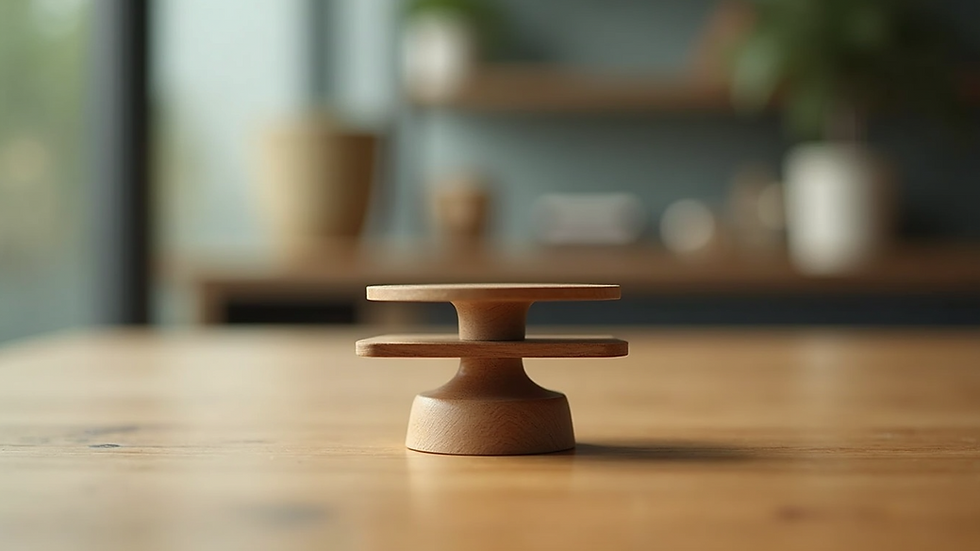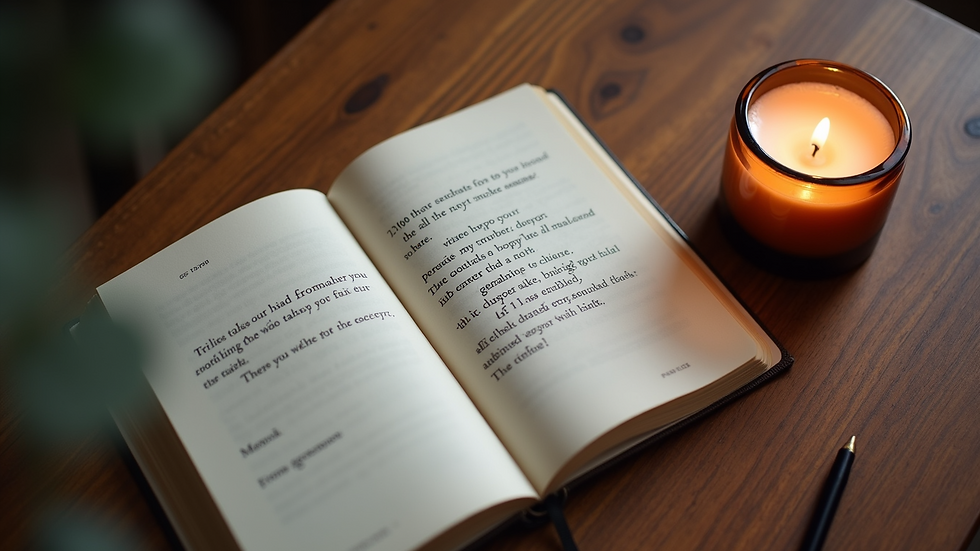Finding Balance in a Busy World
- UrbanSkyn Collection

- Aug 11
- 4 min read
In today’s fast-paced society, finding balance can feel like an impossible task. Between work, family, social obligations, and personal goals, it’s easy to become overwhelmed. Yet, achieving balance is essential for maintaining mental clarity, emotional stability, and overall well-being. This post explores practical ways to find balance in a busy world, helping you create a life that feels manageable and fulfilling.
The Importance of Finding Balance
Balance is more than just dividing your time equally among tasks. It’s about prioritizing what truly matters and creating harmony between different areas of your life. When you find balance, you reduce stress, increase productivity, and improve your relationships.
For example, consider someone who works long hours but neglects their health and social life. Over time, this imbalance can lead to burnout and dissatisfaction. On the other hand, a person who schedules time for exercise, relaxation, and social activities alongside work is more likely to feel energized and content.
Tips for finding balance:
Set clear priorities: Identify what is most important to you.
Create boundaries: Learn to say no to tasks that don’t align with your priorities.
Schedule downtime: Make time for rest and hobbies.
Practice mindfulness: Stay present to avoid feeling overwhelmed.

Practical Strategies for Finding Balance
Finding balance requires intentional effort and consistent habits. Here are some actionable strategies to help you regain control over your busy life:
1. Plan Your Day with Purpose
Start each day by listing your top three priorities. Focus on completing these before moving on to less critical tasks. Use tools like planners or digital calendars to organize your schedule.
2. Limit Distractions
Turn off unnecessary notifications and designate specific times to check emails and social media. This helps you stay focused and reduces mental clutter.
3. Incorporate Movement
Physical activity boosts energy and reduces stress. Even short walks or stretching breaks during the day can make a difference.
4. Practice Deep Breathing or Meditation
Taking a few minutes to breathe deeply or meditate can calm your mind and improve concentration.
5. Delegate When Possible
Don’t hesitate to ask for help or delegate tasks at work or home. Sharing responsibilities lightens your load.
6. Prioritize Sleep
Quality sleep is crucial for mental and physical health. Aim for 7-9 hours per night and establish a relaxing bedtime routine.

What is inner self-love?
Inner self-love is the foundation of a balanced and fulfilling life. It means accepting yourself fully, including your strengths and imperfections. When you practice self-love, you treat yourself with kindness and respect, which improves your emotional resilience.
Self-love is not about being selfish or narcissistic. Instead, it’s about recognizing your worth and nurturing your well-being. This mindset helps you set healthy boundaries and make choices that support your happiness.
Ways to cultivate inner self-love:
Positive self-talk: Replace negative thoughts with affirmations.
Self-care routines: Engage in activities that nourish your body and mind.
Forgiveness: Let go of past mistakes and practice compassion toward yourself.
Celebrate achievements: Acknowledge your progress, no matter how small.
By embracing inner self-love, you create a strong foundation for managing life’s challenges and maintaining balance.

Balancing Work and Personal Life
One of the biggest challenges in a busy world is balancing professional responsibilities with personal life. Here are some tips to help you maintain this balance:
Set work hours: Define when your workday starts and ends, and stick to it.
Create a dedicated workspace: This helps separate work from home life.
Take regular breaks: Short breaks improve focus and reduce fatigue.
Unplug after work: Avoid checking work emails or messages during personal time.
Plan quality time: Schedule activities with family and friends to strengthen relationships.
Remember, balance doesn’t mean equal time for everything but rather giving attention to what matters most in each moment.
Embracing Mindfulness for Daily Balance
Mindfulness is the practice of being fully present in the moment without judgment. It helps you become aware of your thoughts, feelings, and surroundings, which can reduce stress and improve decision-making.
Simple mindfulness exercises to try:
Mindful breathing: Focus on your breath for a few minutes.
Body scan: Notice sensations in different parts of your body.
Mindful eating: Pay attention to the taste, texture, and smell of your food.
Gratitude journaling: Write down things you are thankful for each day.
Incorporating mindfulness into your routine can enhance your ability to find balance and cultivate inner peace and self-love.
Creating a Balanced Lifestyle That Lasts
Finding balance is an ongoing process, not a one-time achievement. It requires regular reflection and adjustment as your life changes. Here are some final recommendations to help you maintain balance long-term:
Review your priorities regularly: Life evolves, and so should your focus.
Be flexible: Adapt your plans when unexpected events occur.
Celebrate progress: Acknowledge your efforts and successes.
Seek support: Connect with friends, family, or professionals when needed.
Practice patience: Balance takes time to develop and maintain.
By committing to these practices, you can create a sustainable lifestyle that supports your well-being and happiness.
Finding balance in a busy world is possible with intention and effort. By prioritizing what matters, practicing self-love, and embracing mindfulness, you can navigate life’s demands with grace and resilience. Start small, stay consistent, and watch how your life transforms into a more balanced and fulfilling journey.



Comments